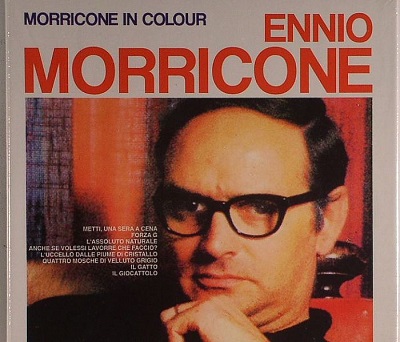13. Morricone In Colour

When I interviewed Maestro for our dear departed big sister paper, The Stool Pigeon, I put it to him that the sheer volume of film and TV scores he had worked on beggared belief. This is how it seemed to me at least. For since starting his career as a composer for the screen over half a century ago with the film Il Federale in 1961, he has worked on over 500 scores. Aside from his universally known work on Sergio Leone’s Italian Westerns, he has been used by such stellar directors as Pier Paolo Pasolini, Bernardo Bertolucci, Brian De Palma, Dario Argento, Pedro Almodovar, John Carpenter and Roland Joffè among a host of others. In fact if you look at the year 1968 alone then it appears that he worked on 38 soundtracks. He said this was a misconception and that sometimes due to studio politics and long periods of post-production, films featuring his work would sometimes bunch together and it was probably more likely that he only did “12 or 13” soundtracks that year.
When I suggested that this was still a relatively high number, especially considering all the rest of the music he was undertaking at the time including working in neo-classical (compositions he termed “absolute”), jazz and avant garde, he exploded into mock outrage: “EH!? NO! NO! NO! It is not much to compose 12 or 13 cantatas in one year because if you think about it Bach, for example, used to compose one cantata a week. He had to compose the music in time for it to be performed in church on Sunday so if you just consider Bach, you will see that I’m practically unemployed! … This is the only comparison to be made between me and Bach, however, that we both work all day and evening long. But if it is your job to be a composer then the one thing you must do is compose!”
And this is why it is relatively hard for modern audiences to get a handle on Morricone outside of the The Man With No Name films and The Mission OST etc. The size and breadth of his body of work is overwhelming to most modern music fans. His protestant work ethic doesn’t sit well with today’s belief in the troubled auteur who spends months, if not years, altering, editing, polishing and even restarting a masterpiece. His busy-ness, his gleeful unpretentious relish in his job as being primarily a trade and his unstoppable forward momentum are things that should be fetishized by younger music fans.

